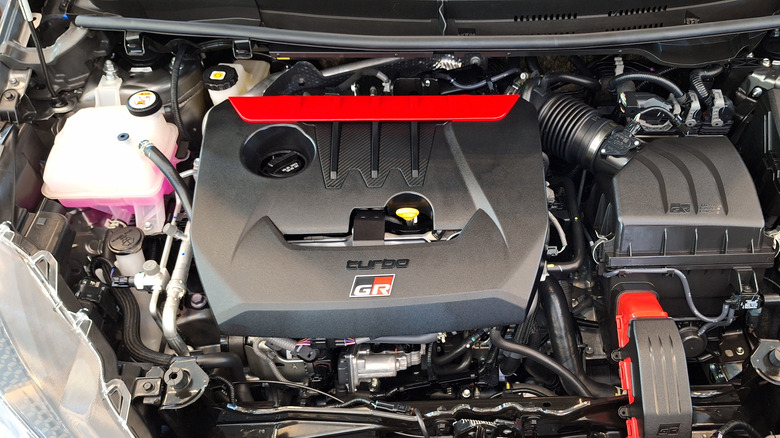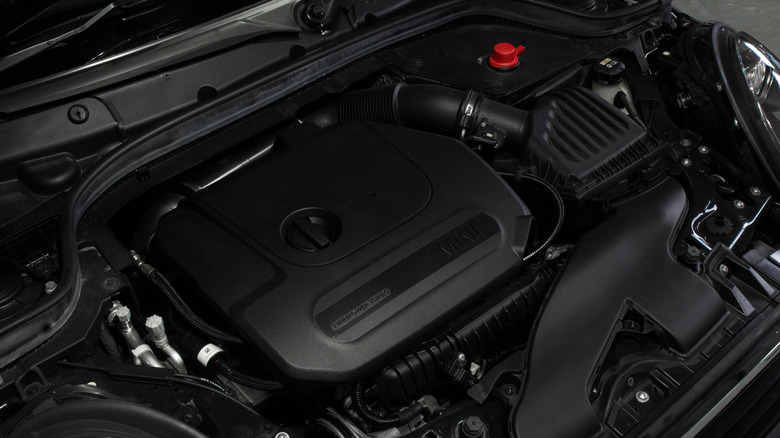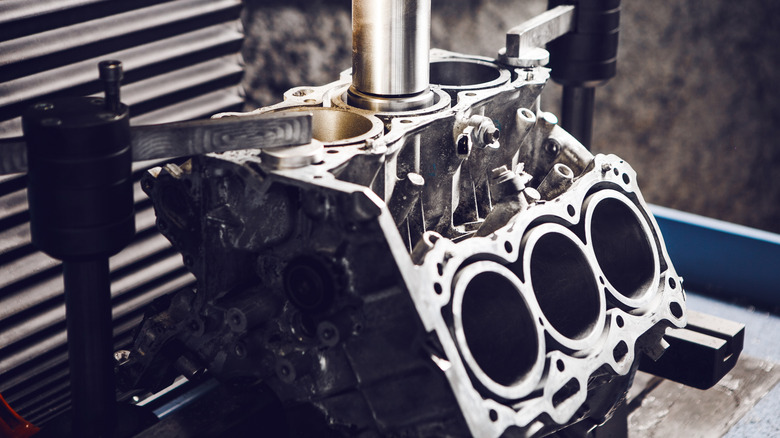3-Cylinder Engines: Here Are The Pros & Cons
In the era of downsizing, automakers are gradually moving away from high-cylinder engines. As a result, they are increasingly in favor of smaller, often turbocharged or hybridized powertrains. A few years ago, four-cylinder engines were the standard entry point in most markets. Today, engines with three cylinders are slowly taking over that role. So, what are the pros and cons of three-cylinder engines, and how do they compare to their larger peers?
The benefits of a three-cylinder engine include better fuel efficiency, lower emissions, fewer moving parts, smaller packaging, lower build costs, and potentially lower maintenance costs. However, three-cylinder engines can sometimes be a bit noisy, often rely too much on forced induction, and may be restricted in terms of the power output. It's also important to note that most three-cylinder engines don't ooze an overly exciting performance image.
They also generally offer less resistance to load. This translates into more stress per cylinder and could contribute to reliability concerns in the long term. Chasing better efficiency and emissions rules has changed car design forever, and a three-cylinder engine is at the very heart of this process. Here is everything you need to know about three-cylinder engines and what makes them both appealing and a bit of a compromise.
Benefits of a three-cylinder engine
According to a study published by the Chalmers University of Technology, three-cylinder engines can effectively lower fuel consumption between 6% and 14% compared with a four-cylinder counterpart. The study also notes that further reductions of up to 23.5% are achievable when technologies like cylinder deactivation are used. Another study found that since a three-cylinder engine burns less, it also produces up to 22% fewer CO2 emissions compared to a four.
Fewer pistons and rods moving also lead to lower friction and reduced energy loss within the engine. Moreover, with less weight and a smaller physical footprint, a three-cylinder engine exerts less force on the car's connecting components, while also being able to fit within the engine bay more easily. This leaves more room within the engine bay, which can help with maintenance since parts of the engine are more accessible for a mechanic.
Three-cylinder engines have fewer plugs, fuel injectors, valves, and timing components. Consequently, they are also potentially cheaper to maintain and to manufacture compared to a four-cylinder engine. Lastly, although usually lower in power, three-cylinder engines can still be pretty sporty. The ones found in the BMW i8 and the Toyota GR Yaris sound cool, and are paired with turbochargers that can bridge the power gap.
Drawbacks of a three-cylinder engine
One of the main drawbacks of a three-cylinder engine is that it can feel noisy and exert noticeable vibrations while running. It can also produce more shuddering due to torque imbalance and crankshaft rotation. This is especially noticeable at lower engine speeds or under load. Since they typically rely on forced induction to bridge the power gap, they can also experience severe turbo lag due to longer firing intervals.
There is only so much power you can squeeze out of three pistons, and in some cases, it might not be enough. This is why tuning a three-cylinder engine isn't as easy. Power gains are basically not as meaningful compared to a four-cylinder or a six-cylinder. Pushing a compact three-cylinder engine to produce maximum power can also compromise reliability, a fact highlighted by many of the common issues with the Ford 1.0L EcoBoost engine.
This brings us to how much load these can endure — the short answer is less. As a result, all of the best vehicles for towing duties come with more cylinders under the hood. There is simply less of an engine to absorb the stress. Lastly, three-cylinder engines have a hard time competing with four-cylinder engines in terms of excitement, let alone a six or even an eight-cylinder, all of which have higher ceilings for both power and refinement.


